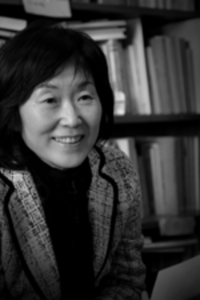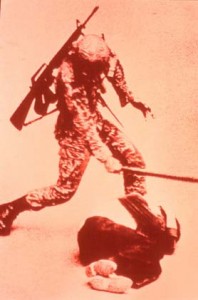This is in Japan Focus, but it focuses on Korean culture, particularly fiction and cinema, and how they relate to history, specifically the Kwangju Uprising. The article beings:
specifically the Kwangju Uprising. The article beings:
2010 will be a year of commemorations in South Korea. The 25th of June will mark the sixtieth anniversary of the beginning of the Korea War. Midway been 2010 and 1950 was 1980. The Kwangju Uprising of May of that year was an event almost as significant as the US-Korean War in framing the contemporary nation.
We have brought together in this section two articles, both of which look at how South Korean artists have attempted to describe, understand and represent the impact of Kwangju in the form of words, images and sound. The essay by author Ch’oe Yun looks back over her career and gives fresh insight into her novella, ‘There a Petal Silently Falls’, perhaps the single most eloquent literary attempt to make sense of the massacre at Kwangju.
Cho’e says some interesting things. She seems a bit concerned that younger Korean readers aren’t so much interested in pundhan munhak, though she sees the possibility this might have partially been a good thing:
This does not mean that I simply want to criticise younger Korean readers for being oblivious to the past. I even wonder if it was forgetfulness of the extremity of the past events that actually helped Koreans to move without fear into the future and build their modern nation. Also, I can only speculate about whether being oblivious in this way was in itself a positive source of energy in a uniquely Korean way
 But she also puts her finger on the reason I really like Korean modern literature, and that is that it is not (yet?) a literature of academic navel-gazing, as it seems to be in the West. Yun says:
But she also puts her finger on the reason I really like Korean modern literature, and that is that it is not (yet?) a literature of academic navel-gazing, as it seems to be in the West. Yun says:
Therefore, as far as the complex situation of Korean literature is concerned, the word ‘reality’ has a very special nuance. This is because as a theme, reality is directly related to contemporary Korean history as well as its political situation and, on the other hand, it is also a term which has been at the core of significant debates that have arisen within modern literature.
It’s a good read, and reminds me that I need to review “There a Petal Silently Falls.”
NOTE: If you have more interest in the Kwangju Uprising, or Korean cinema, be sure to click on the link to the Mark Morriss article.


